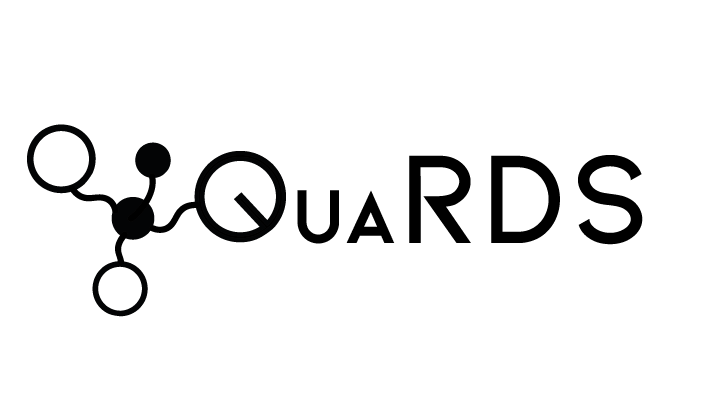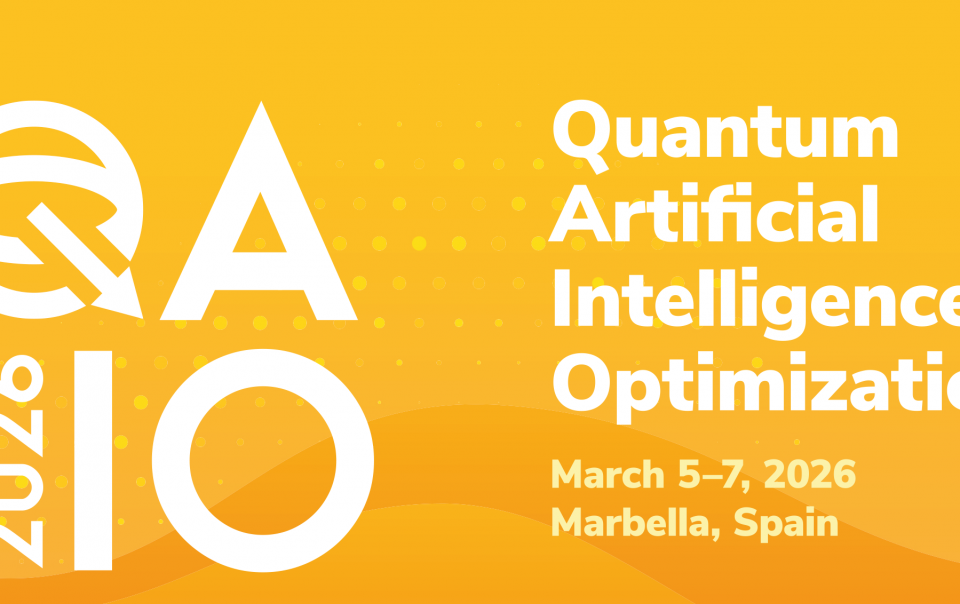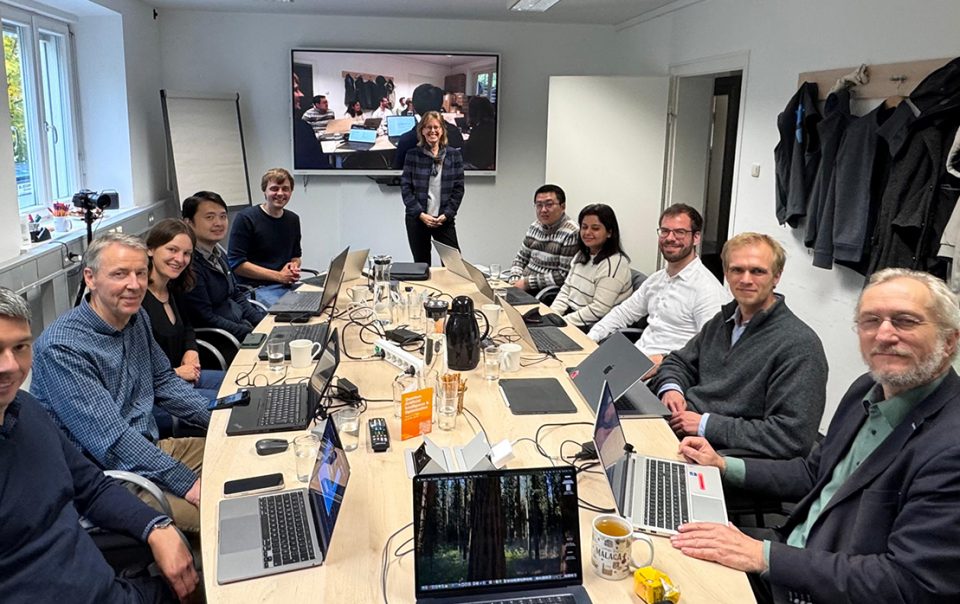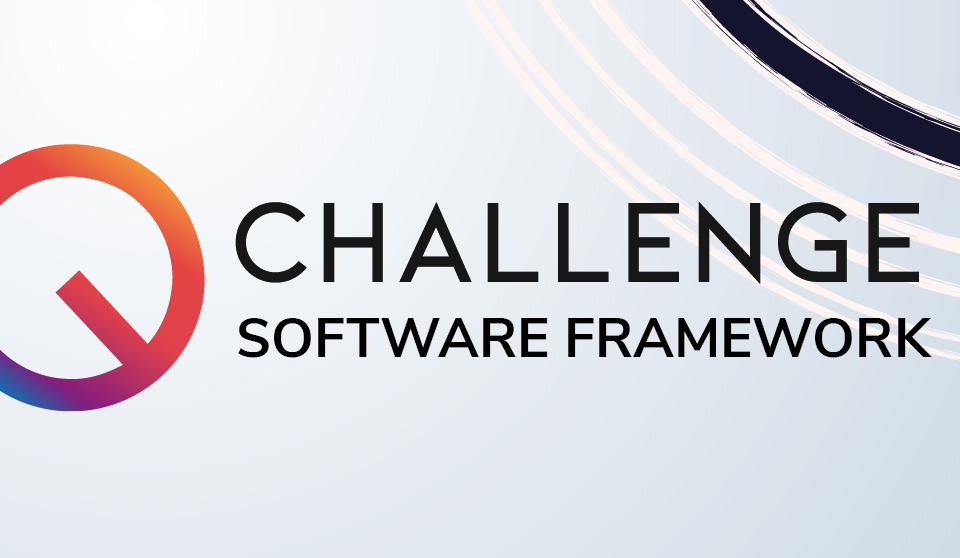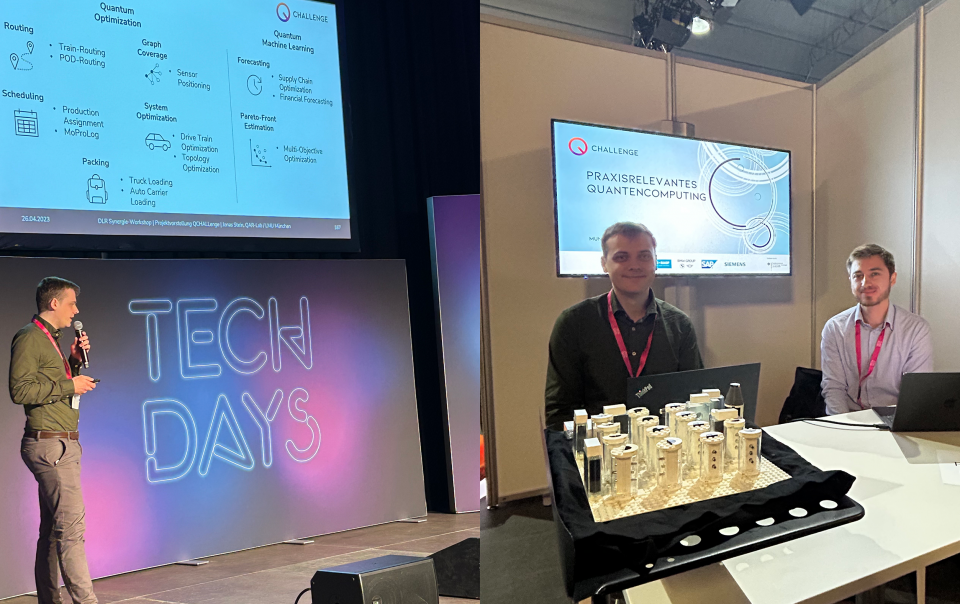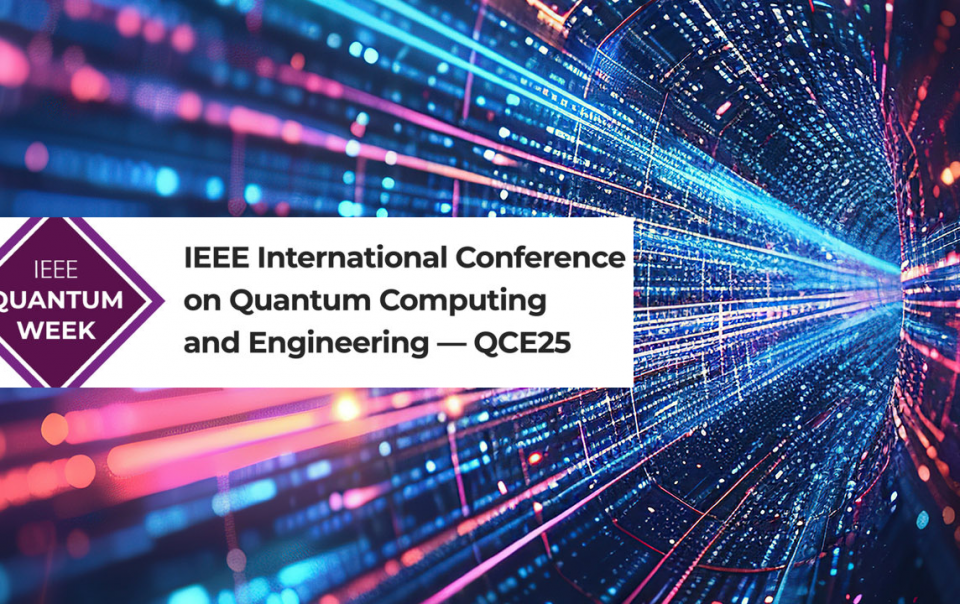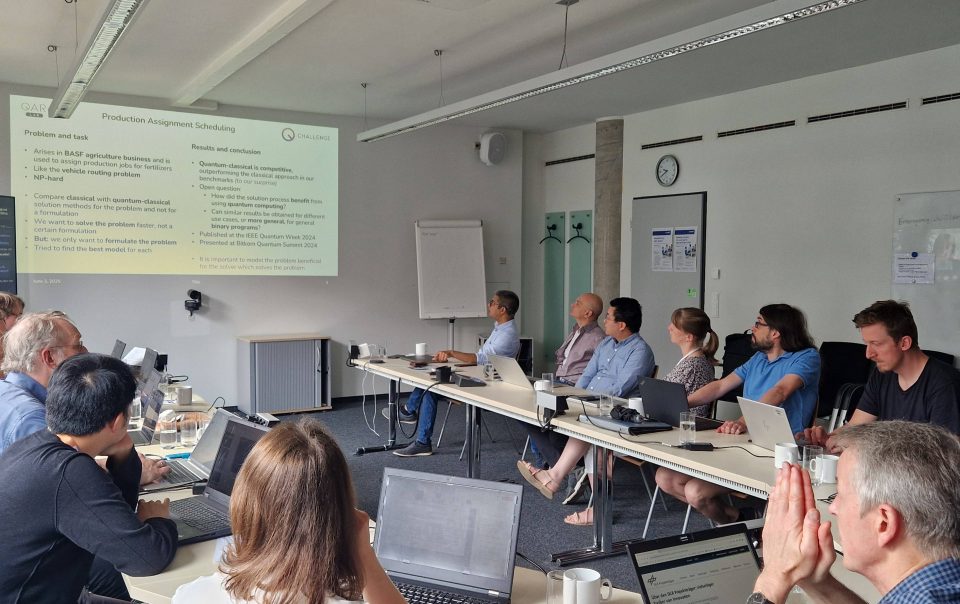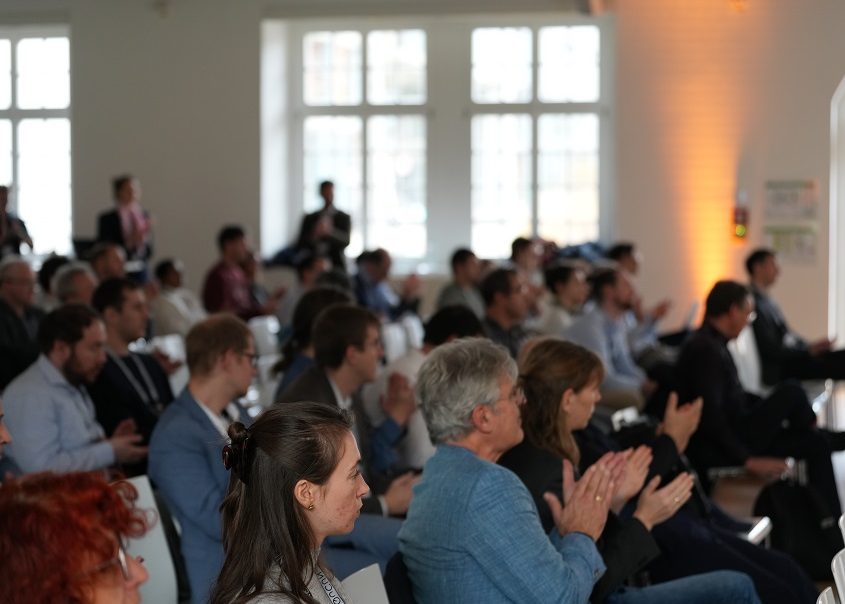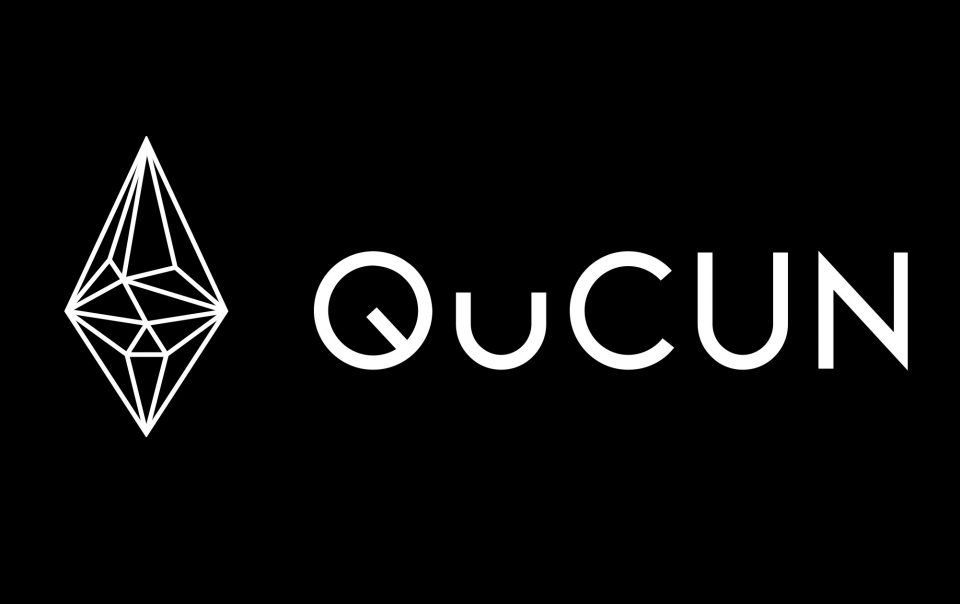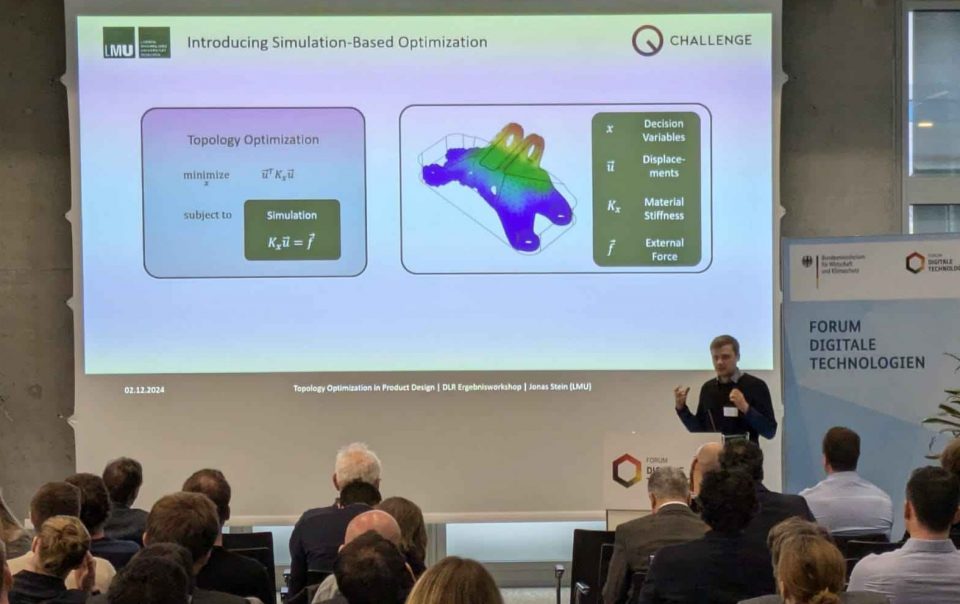QAR-Lab-EN
Workshop Details
QAIO 2026 is a workshop held as part of the 18th International Conference on Agents and Artificial Intelligence (ICAART). It focuses on the interface between quantum computing, artificial intelligence, and optimization. Researchers and industry experts present the latest developments and discuss the future of these pioneering technologies.
Our workshop “Quantum Artificial Intelligence and Optimization” aims to bridge the gap between classical artificial intelligence (AI) and emerging quantum computing technologies. The goal is to promote knowledge transfer and enable synergistic collaboration between AI experts and pioneers in quantum computing. The session will address how quantum computing can revolutionize AI through improved optimization algorithms, quantum machine learning, and the seamless integration of quantum and classical-based techniques.
Participants can expect an exciting exchange on theoretical foundations, practical applications, and the development of hybrid systems that combine the strengths of both worlds. The focus is on collaboration: The workshop offers a platform to discuss insights, challenges, and future directions together – paving the way for breakthroughs in AI enabled by advances in quantum technology.
Topics for Submission
Contributions are invited on the following topics:
- Quantum AI and decision-making
- Quantum machine learning
- Quantum optimization algorithms
- Hybrid quantum-classical computing
- Design and synthesis of quantum architectures
- Quantum circuit optimization using AI
- Applications of quantum AI
- Quantum machine learning operations (MLOps)
- Distributed quantum machine learning
- Quantum cognition and affective systems
QCHALLenge Project Completion
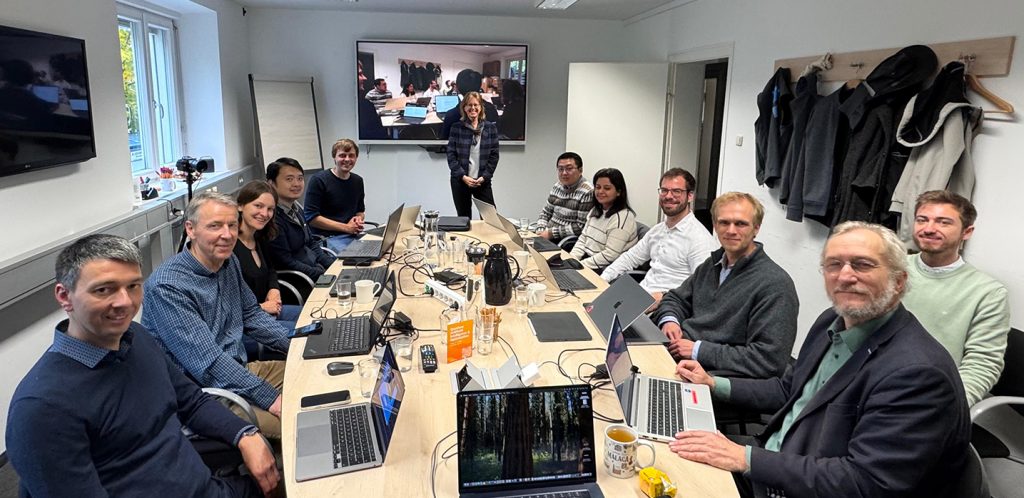
Final Consortial Meeting in Munich
(Munich, 09.10. 2025) After three years of close collaboration with our partners BASF, BMW, SAP, and Ande Semiconductor, supported by Aqarios as part of the BMFTR-funded QCHALLenge project, we proudly presented our final results at the closing meeting with DLR-PT on October 9th, 2025.
Leading this collaboration has been an extraordinary experience – one that started with the QC Optimization Challenge hosted by the QAR-Lab and evolved into one of the most comprehensive joint efforts on industrial quantum applications to date. Together, we explored more than a dozen truly real-world use cases contributed by our industry partners – ranging from production scheduling and sensor placement to train routing and resource optimization. Through this, we achieved significant progress in bridging the gap between quantum research and industrial practice. In over 30 scientific publications, we developed and refined methodologies to apply quantum algorithms to real optimization problems in production and logistics – benchmarked on five different (quantum-inspired) computers. To ensure that quantum solutions can be used seamlessly in today’s industrial automation ecosystems, we created an open source software-framework enabling uniform access to multiple use cases.
To support the quantum readiness of industry, we summarized all findings in a quantum roadmap that provides clear recommendations on when and where quantum computing can offer tangible advantages in the future.
Building on these results, we are now looking forward to integrating the QCHALLenge Framework into the QuCUN Ecosystem and Munich Quantum Software-Stack and beyond – in collaboration with tools like Aqarios Luna and Quark. A heartfelt thank you to all partners and contributors for making this ambitious journey possible – and for proving that collaboration between academia and industry can truly accelerate the path toward Quantum Advantage in Industry.
QCHALLenge Software Framework
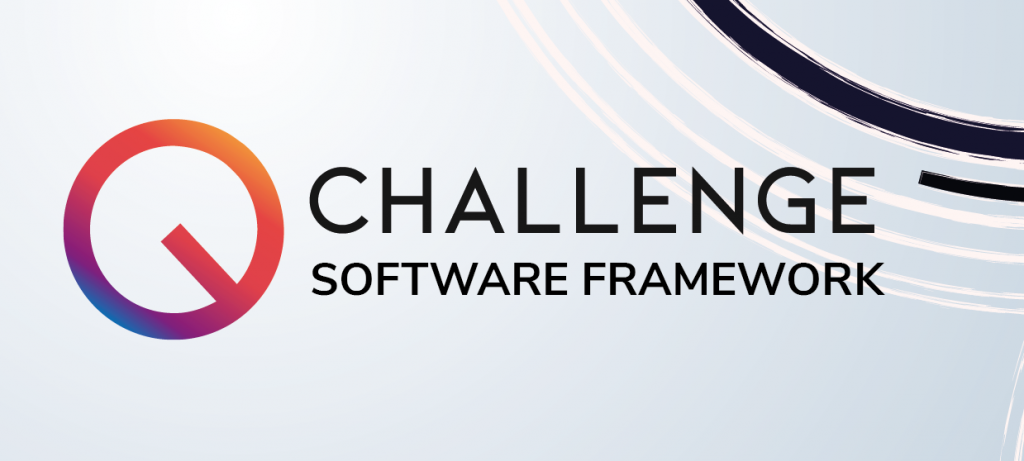
Software Framework Released Now!
(Munich, August 28, 2025) QCHALLenge-FW is an open-source framework for simplified modeling of quantum-inspired industrial applications. With just a few commands, the software can be set up via Conda or the interactive installer – flexibly, depending on the use case. Several end-to-end examples, ranging from data generation to modeling and visualization, demonstrate the use cases covered in QCHALLenge, including production assignment scheduling, sensor positioning, autocarrier loading, modular production logistics, and train routing.
Thanks to the modular architecture, users can not only execute existing use cases, but also add their own problems and integrate them seamlessly into the workflow. Whether optimization, simulation, or evaluation—all central functions are already available as modules.
Special thanks go to Dr. Peter Limacher (SAP) and Nico Kraus (Aqarios GmbH) for designing and developing the framework. More details can be found in the official Github repository.
Munich Tech-Days 2025
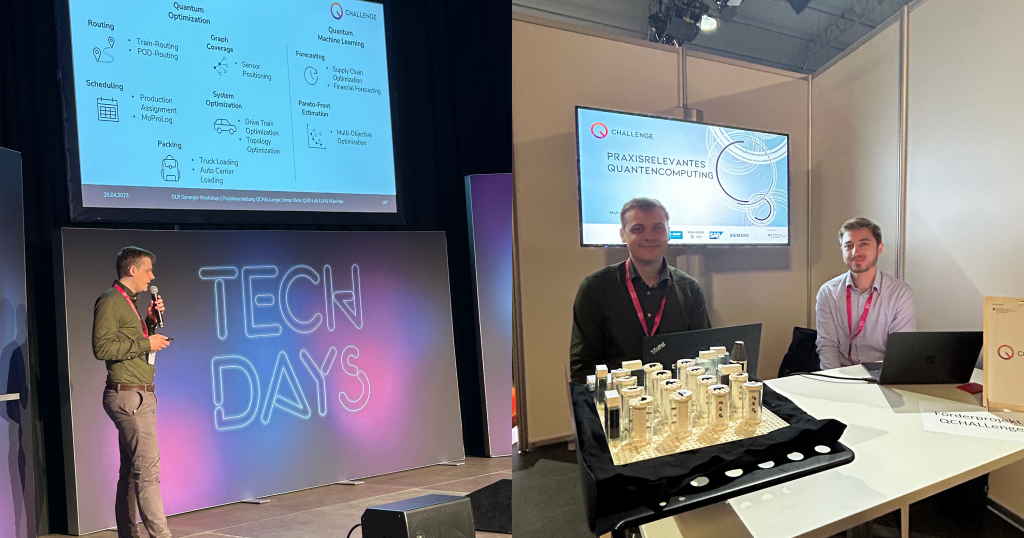
Quantum-Projects und Demo Lego-Annealers
(Munich, 16.07 & 17.07. 2025) As part of the roadshow “Quantum Computing@Munich Tech Days”, organized by Bayern Innovativ, representatives from LMU (Jonas Stein, Maximilian Zorn) and SAP (Peter Limacher) were on site at Munich Ostbahnhof. There, on July 16 and 17, 2025, the findings of quantum computing and the QCHALLenge project were presented to interested parties and curious participants of the event. In addition to a short project pitch by Jonas Stein about the use cases of the project and a social media interview with Peter Limacher, we would like to thank you on behalf of the funding project for the great, interesting discussions and the invitation to the roadshow.
Contributions to QCE-Conference 2025
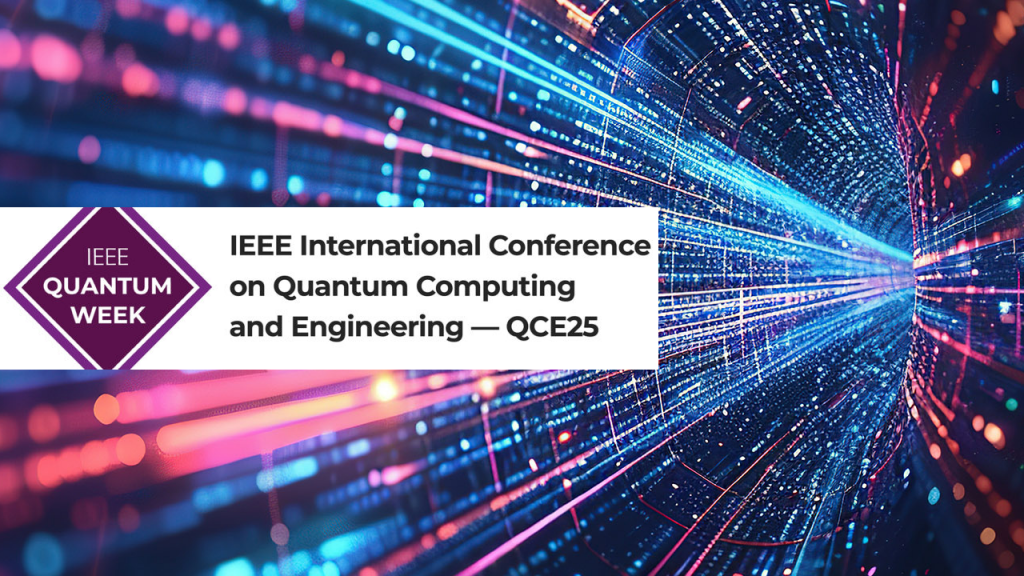
QCHALLenge research in full swing
(Munich, 14.07.2025) We are pleased to report on the following research that has been produced as part of the QCHALLenge project. The papers listed below will be presented at the main track of the QCE conference in Albuquerque, New Mexico, USA from August 31st to September 5th:
- Florian Krellner, Abhishek Awasthi, Nico Kraus, Sarah Braun, Michael Poppel, Daniel Porawski, „Solving a real-world modular logistic scheduling problem with a quantum-classical meta-heuristics“, to appear in the Proceedings of the IEEE QCE 2025.,
- Nico Kraus, Marvin Erdmann, Alexander Kuzmany, Daniel Porawski „Quantum Annealing Hyperparameter Analysis for Optimal Sensor Placement in Production Environments“, to appear in the Proceedings of the IEEE QCE 2025.,
- Peter J. Eder, Aron Kerschbaumer, Jernej Rudi Finzgar, Raimel A. Medina, Martin J. A. Schuetz, Helmut G. Katzgraber, Sarah Braun, Christian B. Mendl, „Quantum-Guided Cluster Algorithms for Combinatorial Optimization“, to appear in the Proceedings of the IEEE QCE 2025.,
- Peter J. Eder, Simon Ramoser, Sarah Braun, Stefan Weltge, „Efficient active-passive vehicle coordination in multimodal transportation networks“, to appear in the Journal of Transportation Research Part E: Logistics and Transportation Review.,
- Leo Sünkel, Jonas Stein, Maximilian Zorn, Thomas Gabor and Claudia Linnhoff-Popien, „Time-Aware Qubit Assignment and Circuit Optimization for Distributed Quantum Computing“, to appear in the Proceedings of the IEEE QCE 2025.,
- David Bucher, Daniel Porawski, Maximilian Janetschek, Jonas Stein, Corey O’Meara, Giorgio Cortiana, Claudia Linnhoff-Popien, „Efficient QAOA Architecture for Solving Multi-Constrained Optimization Problems“, to appear in the Proceedings of the IEEE QCE 2025.
We congratulate the authors and look forward to a lively exchange at QCE 2025.
The 3rd QCHALLenge Consortial-Meeting
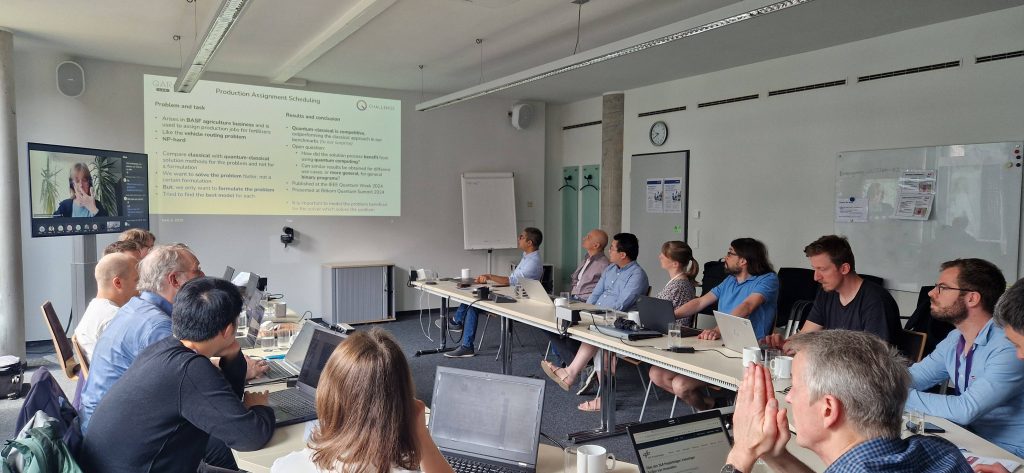
Progress, Sucess and Roadmaps
(Ludwigshafen, 03.06.2025) Representatives of the QCHALLenge consortium from LMU, Siemens, SAP, BMW, Aqarios GmbH and BASF came together again in the third year to discuss the status of the project. The third consortium meeting took place this year on June 3, 2025 at the invitation of consortium partner BASF in Ludwigshafen.
In the presence of Mr. Johann Schmidt from DLR project support, a welcome address by consortium leader Claudia Linhoff-Popien (LMU) was followed by a lively discussion on the progress and objectives of the individual work packages. The core objective of the project – the processing of the consortium partners’ industry use cases – had already been completed and the results and approaches integrated into the newly developed QCHALLenge software package. Presentations of published research from Siemens, SAP and LMU, among others, were also well received. Finally, the last remaining milestone, which is planned under the leadership of BMW and BASF in the form of a roadmap of quantum readiness for the industry and is already in preparation, was discussed in particular.
The consortium would like to thank the DRL project management and project support and is now entering the final months of the QCHALLenge project together.
2nd QuCUN Status Seminar 2024: Successful exchange of the German quantum computing community
Das 2. Statusseminar Quantencomputing fand am 18. und 19. November 2024 in München statt. Ziel der Veranstaltung war der Austausch zwischen Quantenexperten und die Schaffung von Synergien in der Quantenforschung.
The 2nd Status Seminar Quantum Computing took place in Munich on November 18 and 19, 2024. The event aimed to foster exchange between quantum experts, practitioners, and researchers and create synergies and new ideas in quantum research.
On November 18 and 19, 2024, leading experts from the German quantum computing scene met for the 2nd QuCUN Status Seminar at the historic Gaszählerwerkstatt in Munich. The two-day event brought together over 100 participants from research, industry, and start-ups.
The network meeting offered a unique platform for an intensive exchange between project partners of the BMBF funding measures “Application Network for Quantum Computing” and “Application-oriented Quantum Informatics”. Representatives of renowned hardware and software manufacturers and industrial users of quantum computing presented their latest developments and discussed current challenges. Valuable discussions and new ideas for cooperation between the participating research institutions, companies, and start-ups arose both during the networking breaks and in the poster sessions.
The positive feedback from participants confirms the important role of the QuCUN status seminar as a central networking platform for the German quantum computing community. The event contributed to strengthening Germany as a quantum computing location.
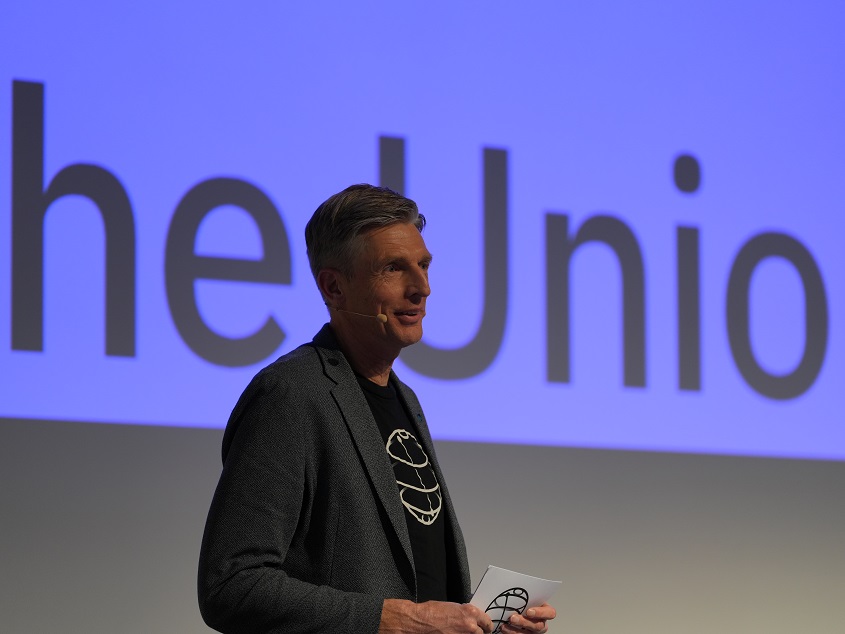
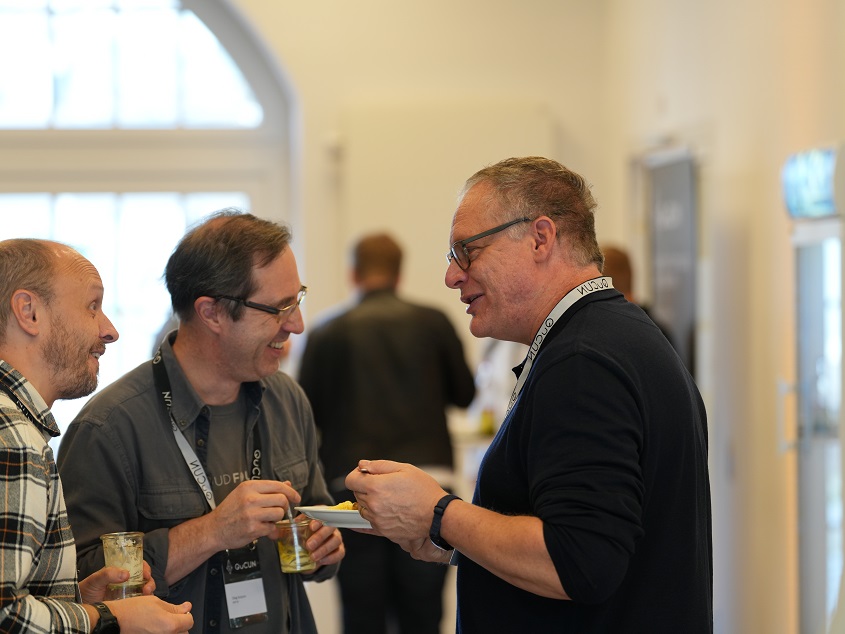
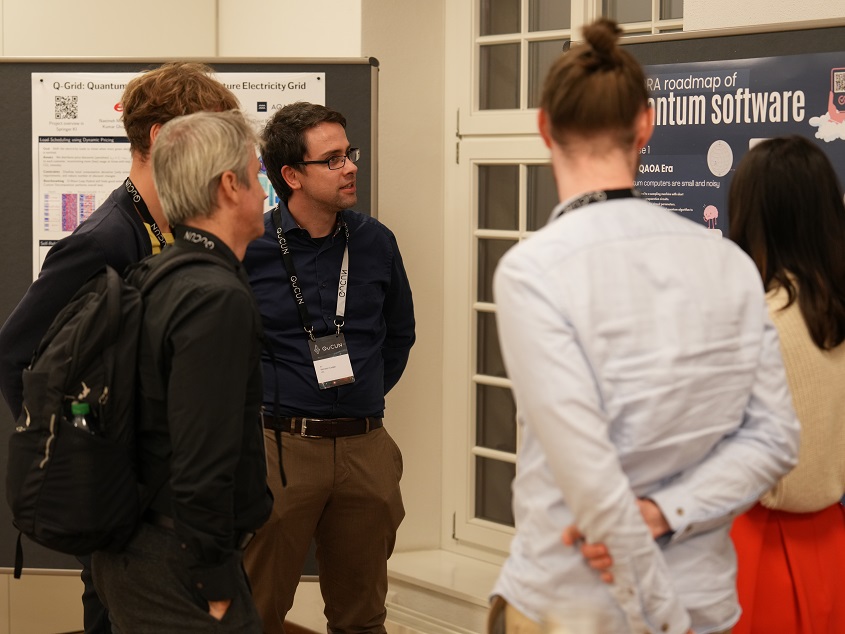
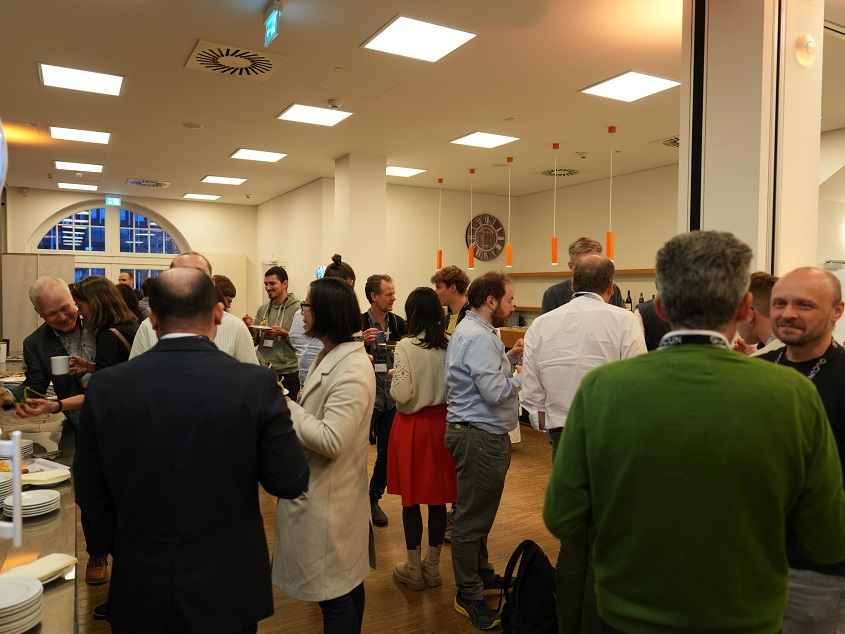
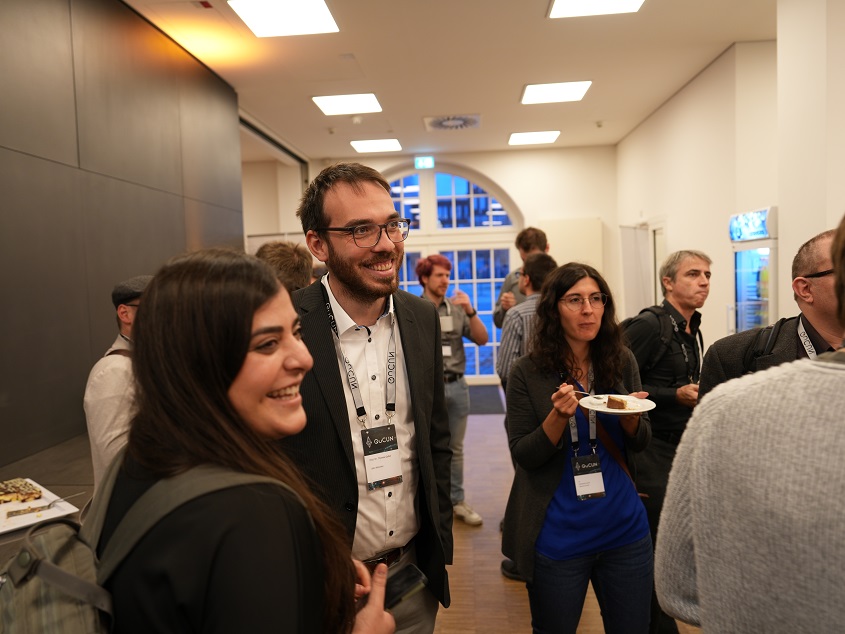
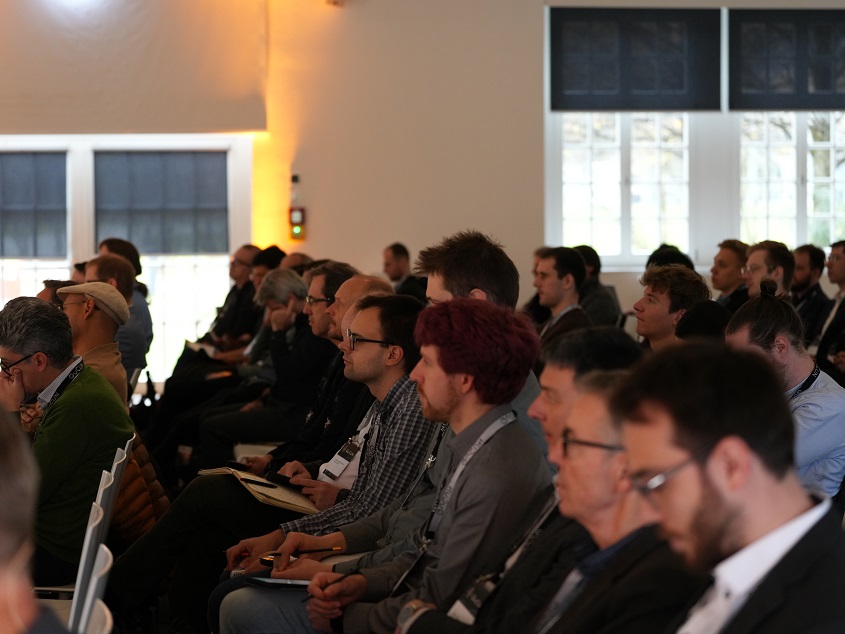
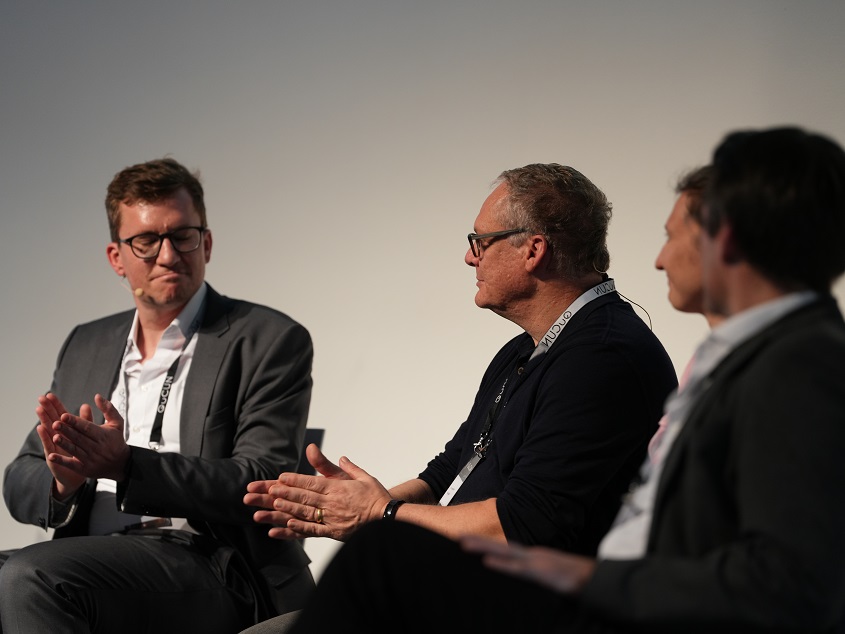
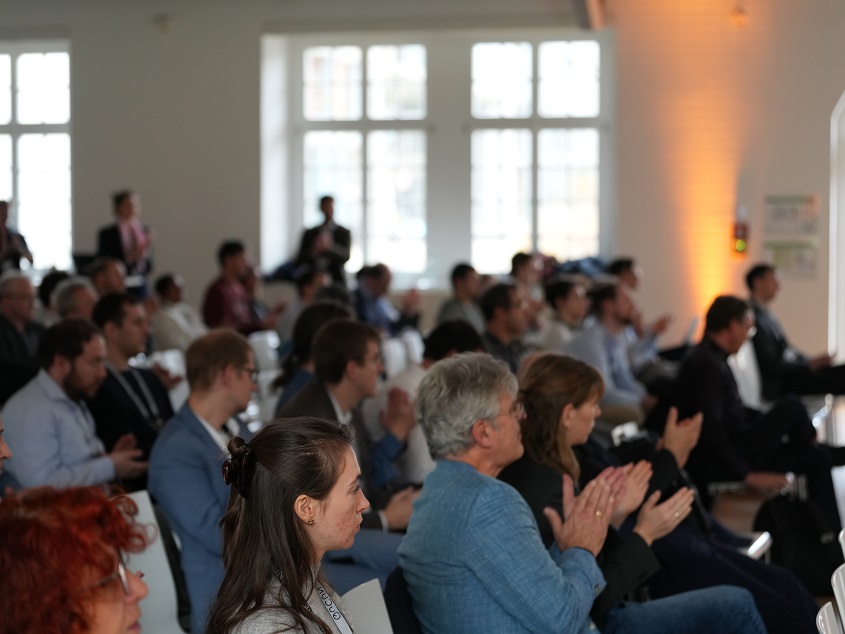
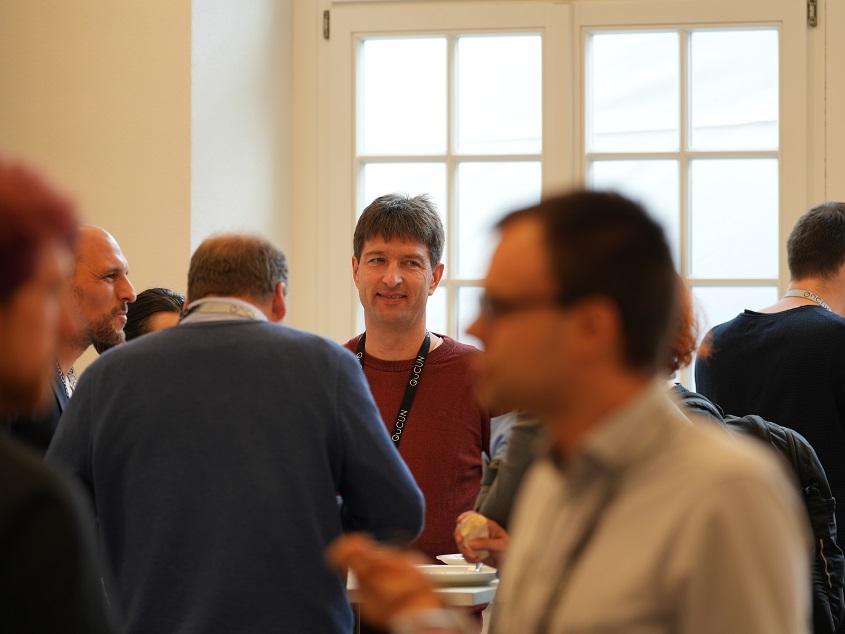
QuCUN @ Quantum Effects Fair in Stuttgart 2024
Stuttgart’s quantum technology fair, “Quantum Effects,” took place on October 8 and 9, 2024, and once again established itself as the world’s leading trade fair for application-oriented quantum technologies. Around 2,500 participants from 27 countries met in the Stuttgart exhibition hall to discuss innovations and developments in quantum technology.
QuCUN gave an informative presentation entitled “QuCUN – The Quantum Computing User Network” on the current state of development of the quantum computing application platform, as well as the low-threshold services offered by the Quantum Computing Access Office, which makes it easier for companies to get started in quantum computing. In addition, QuCUN’s project partner SAP organized the “Quantum Computing for Absolute Beginners” workshop and presented solutions for companies getting started with quantum computing. With 85 exhibitors, the fair offered a comprehensive overview of current quantum technologies, focusing on quantum computers (51%) and quantum applications (29%).
The event provided a unique platform for science and industry to network, discuss projects, and promote scientific exchange.
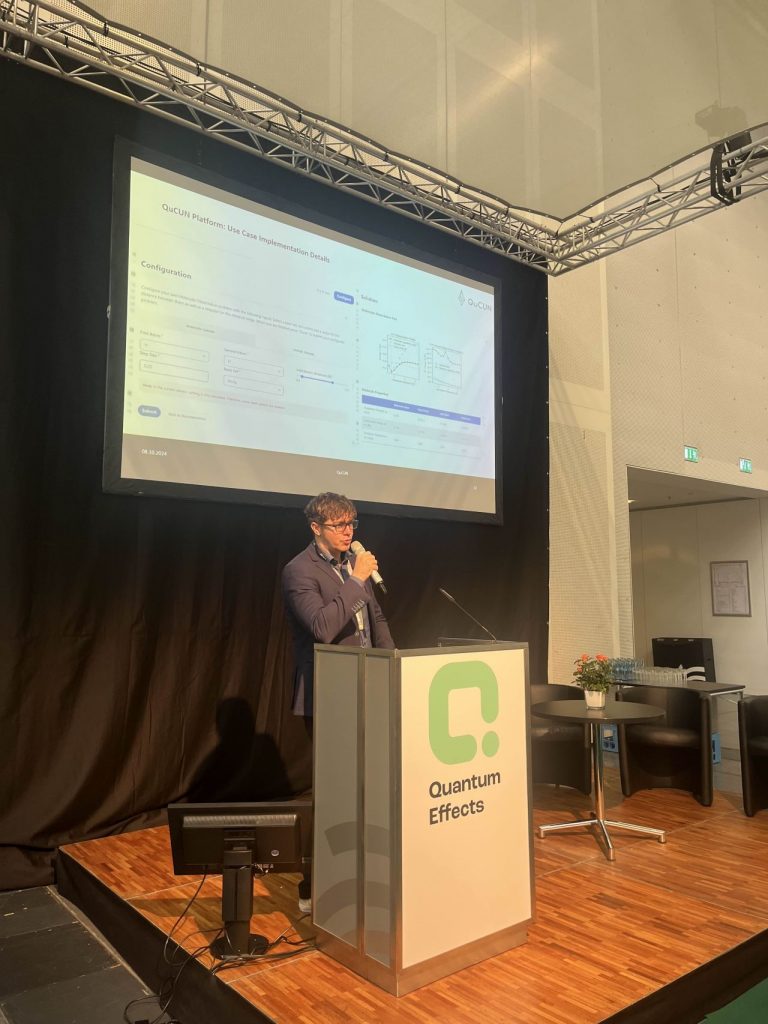
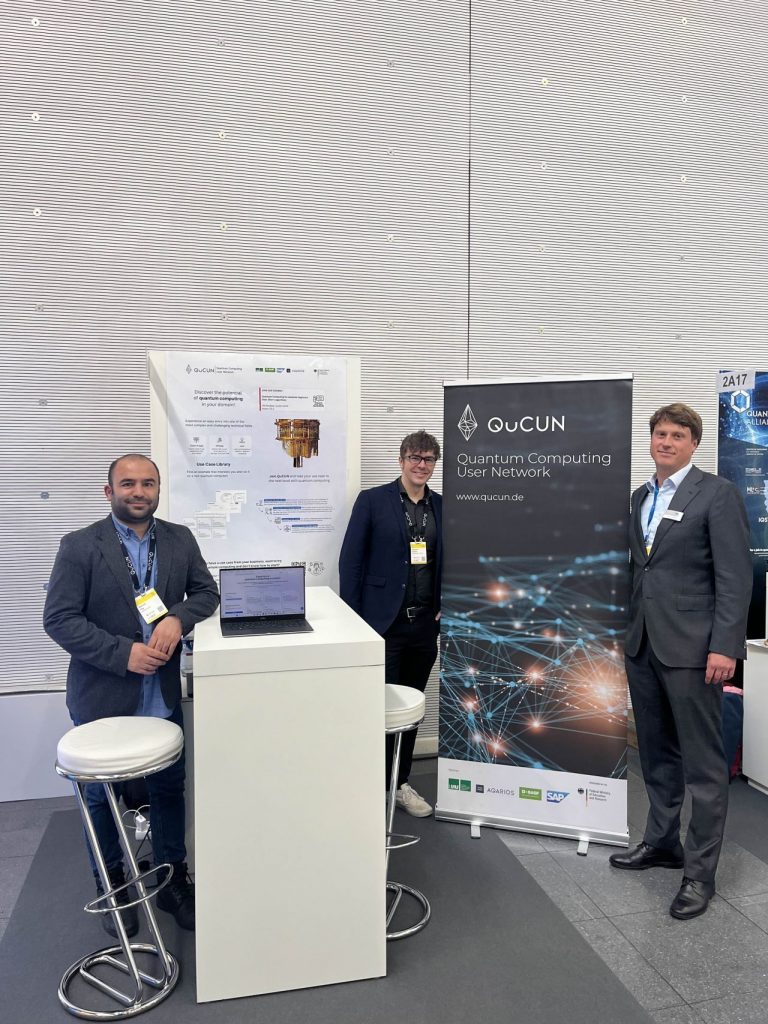
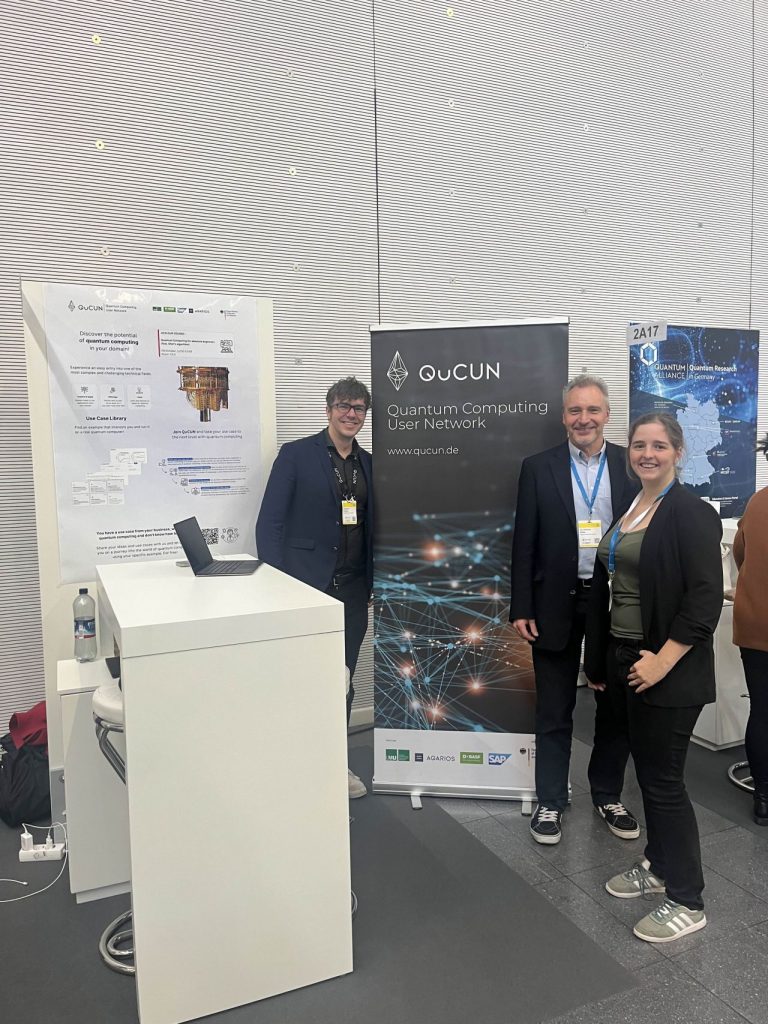
DLR Workshop Event 2024
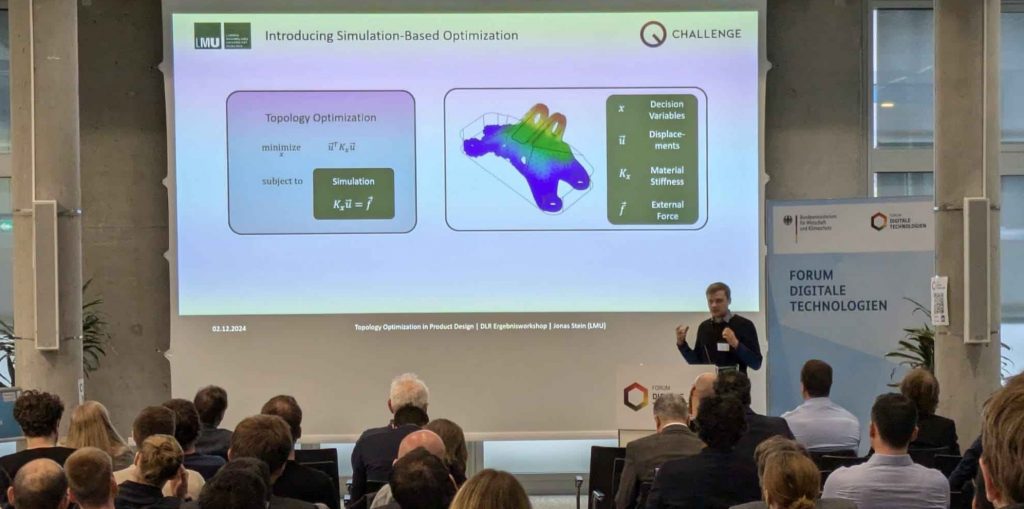
Quantum Computing – Applications for Industry
(Berlin, 03/04.12.2024) Funded by the Federal Ministry for Economic Affairs and Climate Action (BMWK), the initiative “Quantum Computing – Applications for Industry” supports various projects and evaluates the program’s scientific impact. Over two days, the workshop at the Forum Digitale Technologien in Berlin gathered more than 70 participants from research and industry to discuss progress and future challenges.
Key projects presented include:
- QUASIM: Simulating rotor blade milling for aircraft engines, with the potential to reduce waste by 80% using quantum computing.
- QuaST: A decision-tree tool for optimizing problem-solving across quantum and classical computing, aiding industries like semiconductor manufacturing.
- Qompiler: A new programming language, Qrisp, designed to simplify software development for quantum computers.
Additional contributions came from:
- The Quantum Computing User Network (QuCUN), funded by the Federal Ministry of Education and Research.
- The QUA-SAR project of the DLR Quantum Computing Initiative.
- Bench-QC from Munich Quantum Valley, focusing on application-driven benchmarking.
- The Bundesdruckerei Group.
This collaborative effort showcased innovative tools and strategies to make quantum computing more accessible and impactful for businesses.

